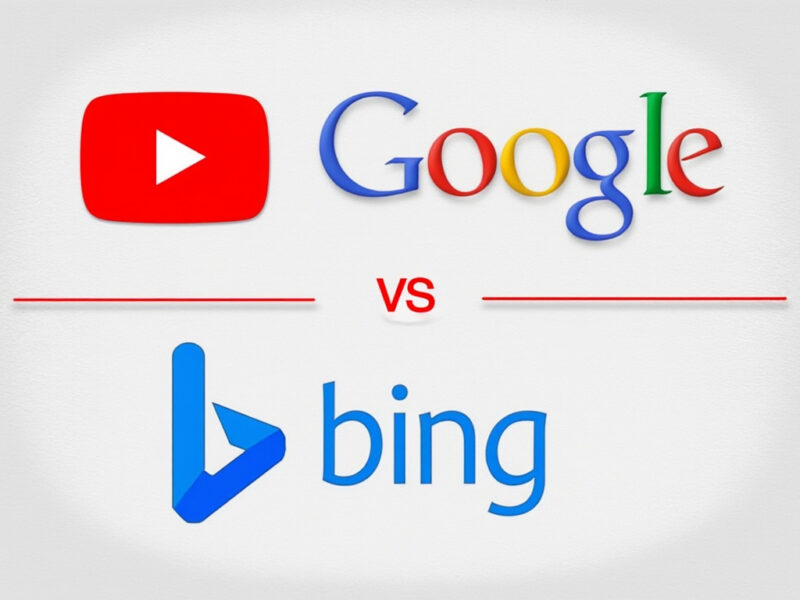
The Paradigm Shift in Search Engines
The digital landscape is undergoing a significant transformation as Answer Engine Optimization (AEO) emerges as the successor to traditional SEO. This paradigm shift, fueled by artificial intelligence (AI), focuses on delivering accurate, personalized answers tailored to individual users’ preferences and contexts. As AI-powered platforms like YouTube’s Search vs Google, ChatGPT, Grok, Pi.ai, Gemini and Perplexity redefine search experiences, the way we interact with digital information is changing forever.
Unlike conventional search engines such as Google and Bing, which prioritize ranking and visibility, AEO emphasizes the quality and relevance of the answers provided. This transition aligns more closely with user expectations in the age of instant gratification.
What is Answer Engine Optimization (AEO)?
Answer Engine Optimization (AEO) is an advanced approach to search that prioritizes answering user queries with precise, contextually relevant information. While Search Engine Optimization (SEO) focuses on increasing visibility through high-ranking content, AEO centers on meeting the user’s intent.
For instance, traditional SEO might optimize a blog post to rank on Google for a specific keyword, but AEO aims to ensure the content provides the exact answer users are seeking. With AI engines delivering results directly to users without requiring them to browse websites, the rules of engagement have shifted significantly.
YouTube as the Benchmark for Search Success. YouTube’s Search vs Google Vs Bing.
YouTube stands apart as an exemplar of search engine efficiency. Unlike Google or Bing, YouTube’s algorithm is singularly focused on keeping users engaged. It achieves this by offering highly relevant video recommendations based on a user’s viewing history and preferences.
This user-centric approach is designed to maximize retention, which also benefits creators and advertisers by fostering prolonged engagement. While search engines like Google and Bing are pulled in multiple directions—balancing user satisfaction, ad revenue, and proprietary services—YouTube prioritizes the user experience above all else.
Google and Bing: Juggling Multiple Agendas
The complexity of Google and Bing lies in their competing priorities. They must provide relevant results while simultaneously promoting their products, such as Google Flights, Shopping, and Books. This multi-faceted approach can dilute the user experience, making it feel less intuitive compared to YouTube’s seamless search and recommendation engine.
Moreover, the integration of paid ads in Google and Bing results often detracts from organic relevance, forcing users to sift through a cluttered interface. In contrast, YouTube’s recommendations remain focused on user preferences, offering a cleaner, more streamlined experience.
AI’s Role in Personalizing Search Responses
Artificial intelligence is transforming how users interact with search platforms by prioritizing relevance and personalization. AI engines like ChatGPT, Claude, and Perplexity analyze user data to generate tailored responses, moving away from the static, one-size-fits-all approach of traditional search engines.
These AI systems consider factors such as search history, location, and context to deliver highly accurate answers. Unlike Google’s static rankings, AI engines dynamically adapt to user input, creating an experience that feels more conversational and intuitive.
YouTube’s Fast Indexing Advantage
YouTube offers content creators an unparalleled advantage: rapid indexing. With the right keywords, a video can achieve visibility on Google and Bing within 20 minutes of being uploaded. This swift indexing allows creators to gain immediate traction, particularly for trending topics.
In contrast, written content on platforms like Medium often takes hours or even days to appear in search results, even with optimal keyword usage. YouTube’s agility in indexing content makes it a powerful tool for businesses and creators looking to capitalize on immediacy.
Real-Time Refresh Rates in AI Models
The ability of AI models to update their knowledge base is crucial for maintaining relevance. Platforms like Perplexity and Grok are already refreshing their information weekly, far outpacing traditional models that require months to update.
These frequent updates ensure that users receive timely and accurate answers, particularly for dynamic topics such as news, technology, or product releases. As AI systems evolve, the refresh rate will become a critical factor in their utility and trustworthiness.
The Role of Context in AI Responses
One of the most significant advantages of AI-driven search engines is their ability to understand and incorporate context into their responses. By analyzing factors such as the user’s location, browsing habits, and previous queries, AI models can provide answers that feel uniquely tailored.
This contextual awareness eliminates the need for users to refine their searches manually, creating a more intuitive and efficient experience. For instance, an AI engine might prioritize local businesses when answering a query about nearby restaurants, providing a more relevant result than a generic search.
From SEO to AEO: Key Learnings
Transitioning from SEO to AEO requires a shift in mindset for digital marketers. Instead of focusing solely on visibility, marketers must create content that directly addresses user queries and anticipates their needs.
For example, video content optimized for specific questions or tutorials is more likely to succeed in an AEO-driven environment. Similarly, structuring written content to answer precise questions can improve its relevance in AI-driven search results.
How AI Models Process Search Histories. YouTube’s Search vs Google vs Bing.
AI models like ChatGPT excel at leveraging search histories to refine their responses. Even when users switch accounts or use different IP addresses, these models identify patterns and adapt accordingly.
This capability ensures that users receive consistent, relevant results, even when their browsing context changes. By building a more complete understanding of the user, AI models can deliver responses that feel more intuitive and personalized.
AI’s Regional Variations in Search Results
AI-driven search engines often reflect the biases and limitations of their underlying data sources. For instance, ChatGPT’s search results closely mimic Bing’s results in the United States but differ significantly in other regions.
These regional variations highlight the importance of localizing content and optimizing for specific markets. Businesses aiming to reach a global audience must account for these differences in their AEO strategies.
The Future: YouTube’s Search vs Google vs Bing vs Chatgpt vs Grok vs ChatGpt vs Perplexity
The future of search lies in AI-driven answer engines that prioritize user satisfaction over static rankings. As platforms like Grok, Perplexity, and Gemini continue to innovate, traditional SEO strategies will become less relevant.
Instead, businesses must focus on creating highly relevant, engaging content that aligns with user intent. Whether through video, interactive media, or written articles, the emphasis must shift to providing value rather than merely achieving visibility.
AEO prioritizes delivering personalized, relevant answers in real-time, whereas SEO focuses on achieving high visibility in static search results.
YouTube’s algorithm is designed to maximize user retention by offering highly relevant recommendations based on individual preferences.
AI models update their knowledge bases on varied schedules. For example, Perplexity refreshes weekly to ensure timely and accurate responses.
Collaborations such as ChatGPT-Microsoft and Google-Gemini drive innovation and shape the development of AI-driven search engines.
Video engages users more effectively due to its visual and auditory appeal, making platforms like YouTube ideal for dynamic, immersive search results.
Businesses should prioritize user-centric strategies, leverage video content, and focus on creating contextually relevant answers to thrive in an AEO-driven world.
Read the Book From SEO to AEO if you want that AIs Talk about You.
The most specialized blog in AEO is AidaFramework.com – AEO for Business

Comments